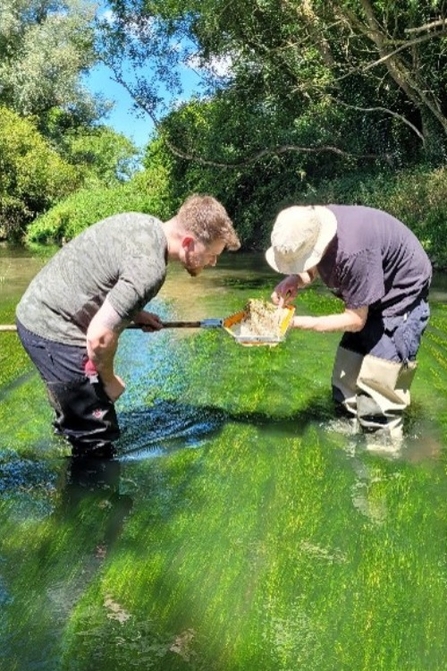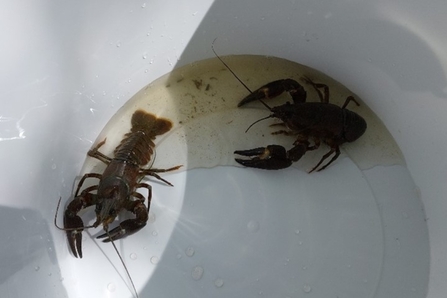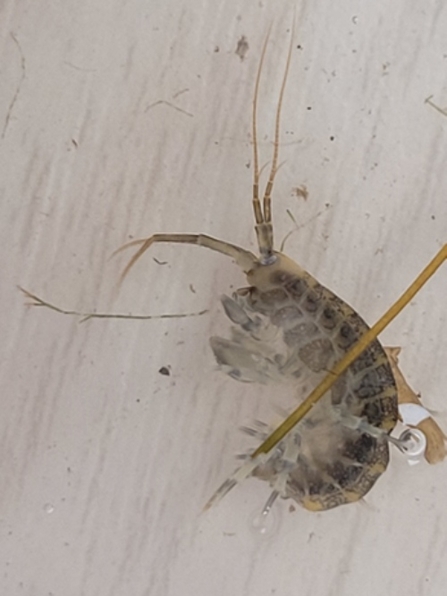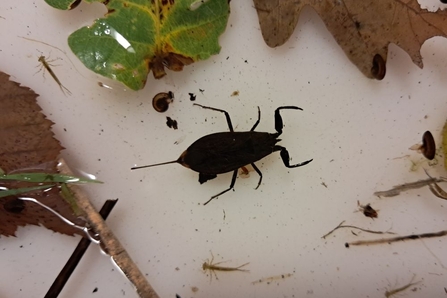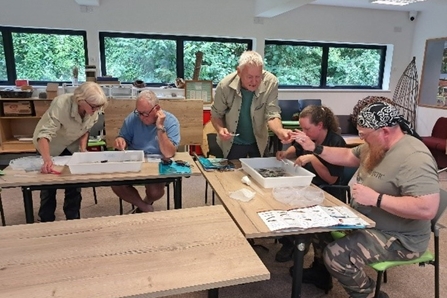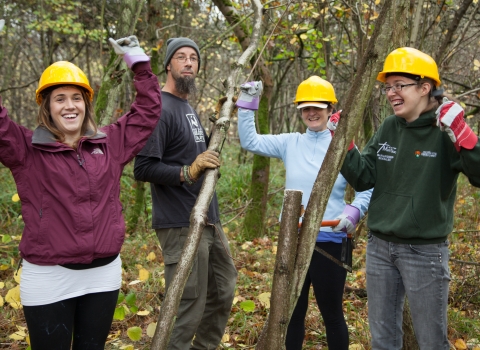As part of Anglian Waters "Get River Positive" scheme, volunteers and supporting staff have been learning to use the ‘Riverfly’ invertebrate monitoring technique.
Riverfly is hosted by the Freshwater Biological Association and monitors specific invertebrates (including mayflies, caddisflies and freshwater shrimps) that are good indicators of water quality (see: https://www.riverflies.org/).
The project aims to increase the number of locations being monitored using the Riverfly system. Three sessions have been delivered so far...

